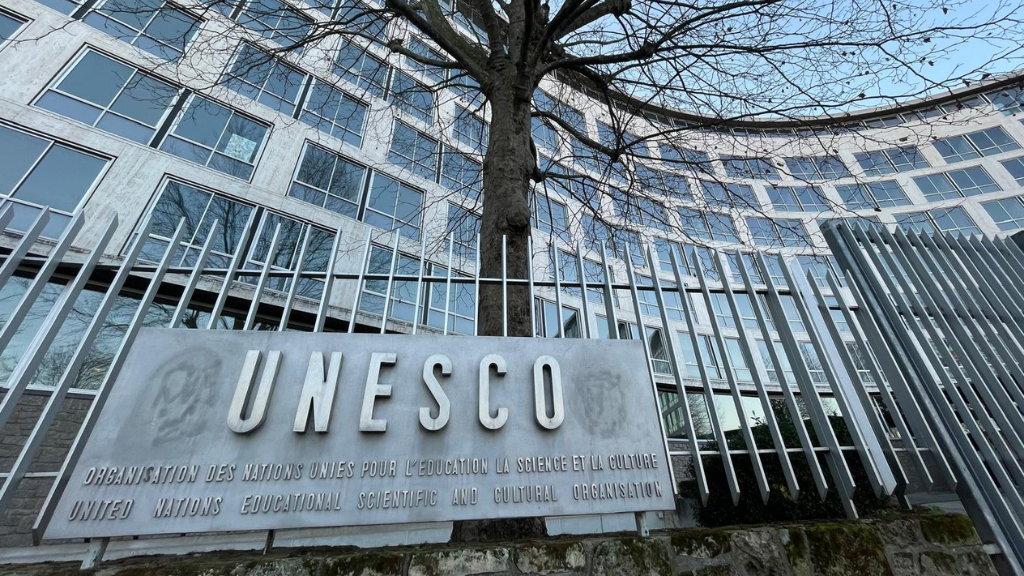
We are proud to announce that we are now established as an official NGO partner to UNESCO (consultative status). UNESCO stands for “United Nations Educational, Scientific and Cultural Organization” and is the UN’s specialized agency that aims to foster international cooperation in the fields of education, science, culture, and communication.
This new, formal status is an important recognition of the synergies between our two organizations and of our shared commitment to openness as a means to benefit everyone worldwide. As an official NGO partner, Creative Commons (CC) will now have the opportunity to contribute to UNESCO’s program and to interact with other official partner NGOs with common goals. In particular, we look forward to:
- Participating in UNESCO meetings and consultations on various subjects core to CC’s mission. This will give us a seat at the table to advocate for the communities we serve and share our expertise on openness, the commons, and access to knowledge.
- Participating in UNESCO’s governing bodies in an observer capacity. This will enable us to deliver official statements on matters within our sphere of expertise and contribute to determining UNESCO’s policies and main lines of work, including its programs and budget.
- Taking part in consultations about UNESCO’s strategy and program and being involved in UNESCO’s programming cycle. This will give us opportunities to communicate our views and suggestions on proposals by the Director-General.
Becoming an official partner is a testament to our rich and long-standing collaboration with UNESCO over the past 24 years. Over this time, CC and our community have developed trusted relationships with UNESCO staff and Member State representatives, yielding many opportunities to engage and collaborate effectively.
For example, CC was deeply involved with and supported the development of UNESCO’s 2019 Recommendation on Open Educational Resources (OER), and continues to play an important role in its implementation. CC participated in the 3rd UNESCO World OER Congress in November 2024 as well as in the UNESCO Dynamic OER Coalition meeting to make final recommendations on the Dubai Declaration on OER.
Likewise, CC contributed to the development of the UNESCO 2021 Recommendation on Open Science and advised UNESCO in adopting its open access policy, where CC licenses are a core component.
At the International Conference of the Memory of the World Programme: Memory of the World: at the Crossroads of International Understanding and Cooperation in October 2024, we engaged in conversations about the importance of preserving and supporting access to heritage, as well as the many challenges archives, libraries, and museums face in ensuring intercultural collaboration on a global scale.
These achievements are a testament to the dedication of CC community members promoting openness globally and to the many open champions within UNESCO.
Today, as we steer the Towards a Recommendation on Open Cultural Heritage (TAROCH) Coalition, we draw inspiration from UNESCO’s Memory of the World Program and 2015 Recommendation concerning the preservation of, and access to, documentary heritage, including in digital form, to advance equitable access to public domain heritage. In 2020, we collaborated with the Memory of the World Regional Committee for Asia-Pacific (MOWCAP) and UNESCO Bangkok in a webinar series to promote universal access to documentary heritage.
As we continue to advance TAROCH, we know that the role of open solutions in removing unfair economic, legal, technological, and sociocultural barriers to access heritage, while fostering creative reuse and telling the stories of our shared humanity, is more important than ever.
Looking Ahead
We look forward to the exciting new opportunities for strategic collaboration on the horizon.
With Mondiacult 2025, the world’s biggest cultural policy conference, taking place soon, we look forward to assisting UNESCO in delivering on its key priority of “ensuring equitable access to heritage,” as indicated in the Mondiacult 2025 concept note. CC’s efforts through TAROCH to remove barriers, support interoperability, and create and share heritage with open licenses and tools can strengthen equitable access to heritage. Once heritage is accessible, we collectively have the opportunity to build more connected, resilient, and sustainable societies. Make sure to join us at our Mondiacult virtual side event on September 17, 2025.
For more information:
- Contact us at info@creativecommons.org
- Join the TAROCH Coalition